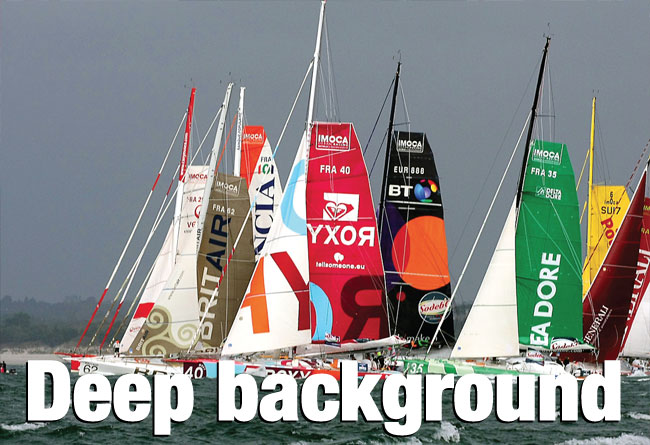
Everyone knows about that long, long list of French shorthanded successes – less well understood are the carefully thought-out foundations upon which that roll-call is created. Sam Davies explains life behind the ‘screens’
‘5, 4, 3, 2, 1, START’ calls Loïc, our coach, on the VHF radio. My heart is racing and sweat is pouring down my face as I grind in the final centimetres of the mainsheet. ‘GENERAL RECALL’ follows from the loudspeaker, barely audible over the screaming apparent wind as Roxy is going upwind in 28kt of breeze. I have six weeks to go before the start of the Vendée Globe and I am taking part in the final week of solo training at Port La Forêt with my fellow team-members (11 in total from the 30- boat fleet that will race the Vendée Globe.)
A general recall in a practice Imoca 60 start is quite depressing – starting competitively in these boats is physically draining and we tend to only do one start per race! Add to that 25-30kt of wind and I can safely say that I was gutted… not enough energy to do that all over again.
Once we had all managed to turn downwind and get back to the line, our head coach Christian (Le Pape) came on the VHF and gave us all a lecture: we were being way too ‘aggressive’ and at least two boats had come within centimetres of touching each other; which is acceptable in the Figaro class, but in an Imoca 60, in 30kt of wind just weeks before our Vendée Globe. this was sheer craziness in his opinion. We all had to calm down and accept that this is training and focus instead on the big picture.
We invite you to read on and find out for yourself why Seahorse is the most highly-rated source in the world for anyone who is serious about their racing.
To read on simply SIGN up NOW
Take advantage of our very best subscription offer or order a single copy of this issue of Seahorse.
Online at:
www.seahorse.co.uk/shop and use the code TECH20
Or for iPad simply download the Seahorse App at the iTunes store


